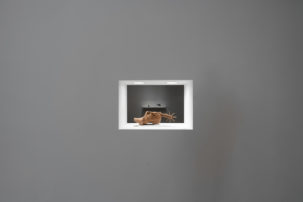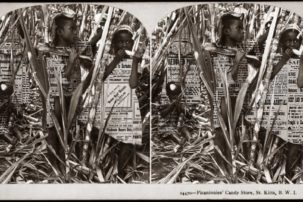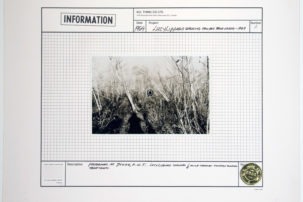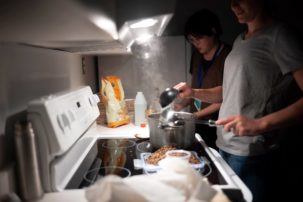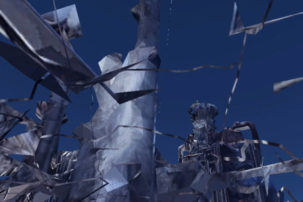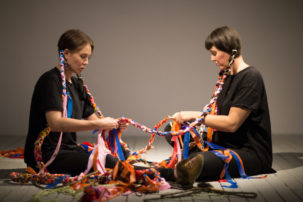Essays
On the Life and Death (and Life) of Dancemakers
In November, the board of directors at Dancemakers said it would close, after a 46-year run. Then in February, a new board took the reins, with a new, in-process vision
On the Life and Death (and Life) of Dancemakers
In November, the board of directors at Dancemakers said it would close, after a 46-year run. Then in February, a new board took the reins, with a new, in-process vision
Experiments in Collective Form
Two Toronto artists reflect on performative gestures of protest in the 1990s Harris-era of Conservative provincial politics—a moment that has sharp similarities to our own
Haunted Houses
This year, the SITElines biennial in Santa Fe, New Mexico, explores home and belonging—in a place where distinctions between inside and outside often feel blurred
Site and Non-Site, Place and Process
As Edmonton continues to grow its public art program, writer Daisy Charles reflects on an earlier era of conceptual art in the city
Ethics Beyond Language
An artist's appropriation of poet M. NourbeSe Philip's conceptual poem Zong!—celebrated worldwide but barely known in Canada—perpetuates the violence that the poem retells
Then and Now
Our 1969 foray into the Arctic was, in hindsight, an intellectual adventure—a naively colonialist art-scouting trip. It was also an eye-opener
Why Art Schools Need More Socially Engaged Art
Socially engaged art isn't just a subject for a course—it's a way to radically transform the role and potential of the art school
Bad Stars
How Christina Battle’s installation art re-envisions Sarnia’s Chemical Valley—and the pollution it leaves behind
Who Benefits from the Indigenous Art Biennial?
A look at the 4th BACA biennial reveals the difference between working in Indigenous ways, and working in Indigenous art—and Niki Little and Becca Taylor’s resolve to curate to and for their sisters
Political Economy at Art School
Why we can’t—and shouldn’t—disentangle art from money
Look What’s Possible
The mixtape-style documentary SHAKEDOWN unearths two years’ worth of grimy, early-2000s footage of a Black lesbian strip-show and party series in LA

